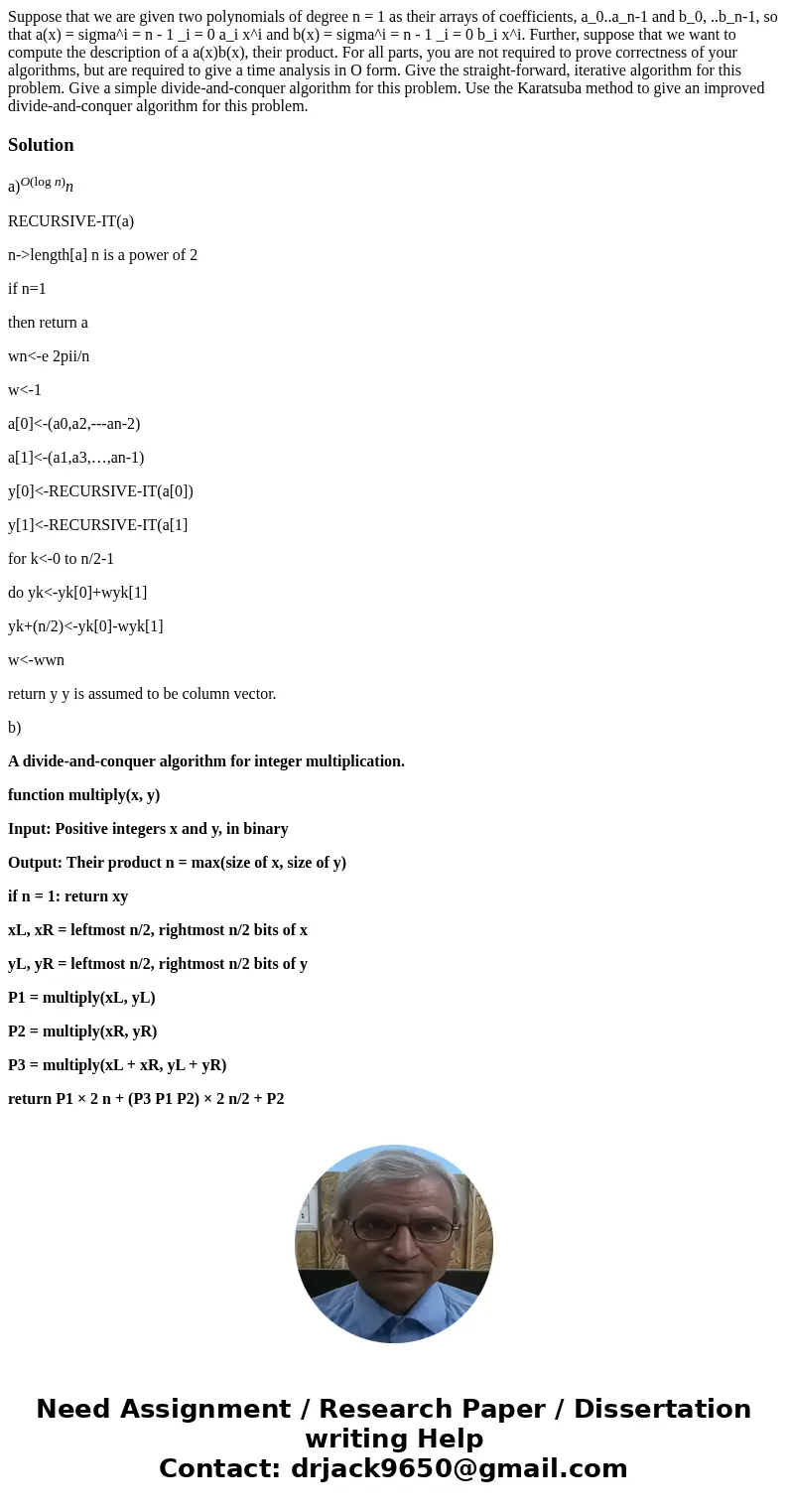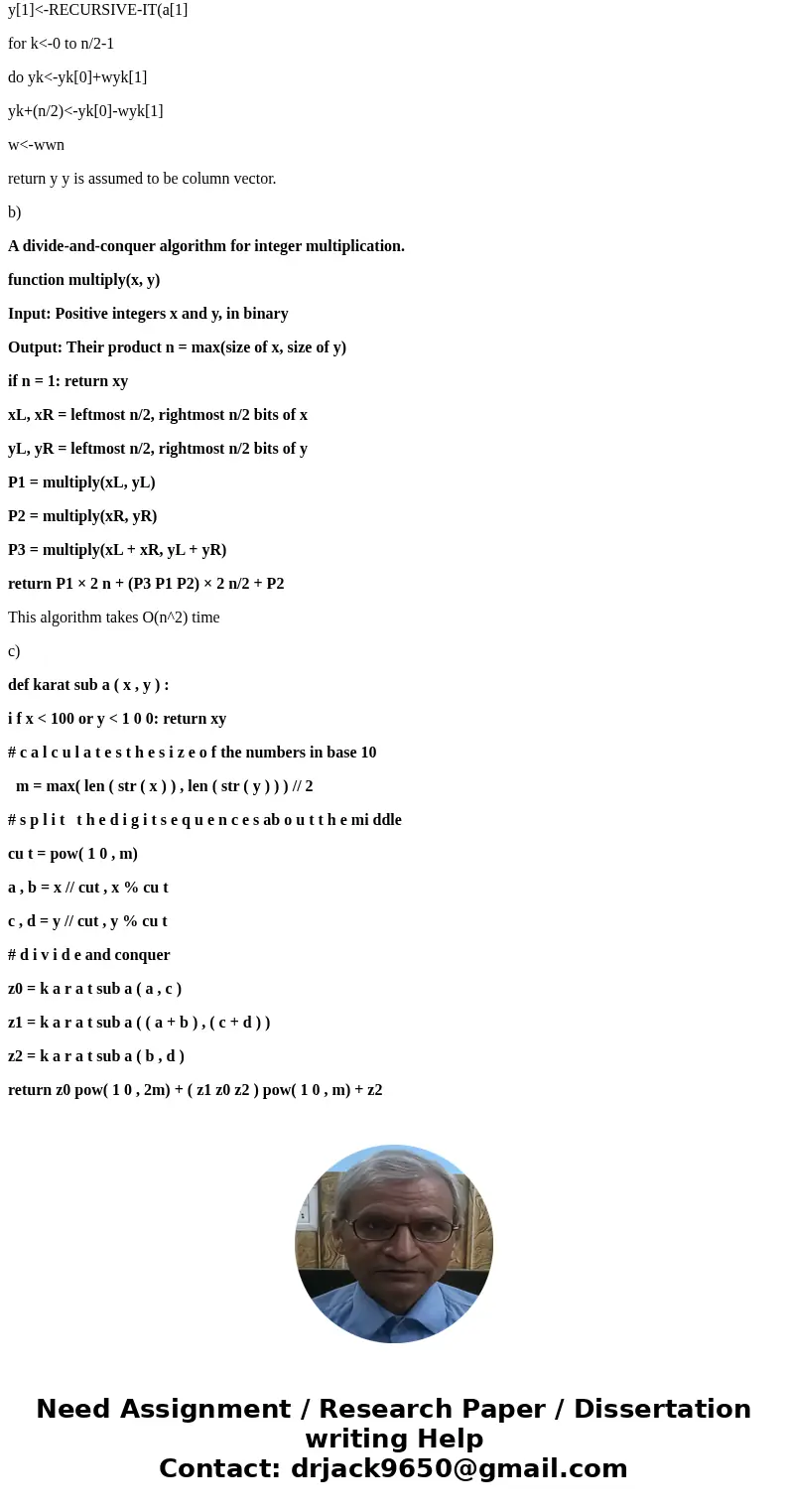Suppose that we are given two polynomials of degree n 1 as
Solution
a)O(log n)n
RECURSIVE-IT(a)
n->length[a] n is a power of 2
if n=1
then return a
wn<-e 2pii/n
w<-1
a[0]<-(a0,a2,---an-2)
a[1]<-(a1,a3,…,an-1)
y[0]<-RECURSIVE-IT(a[0])
y[1]<-RECURSIVE-IT(a[1]
for k<-0 to n/2-1
do yk<-yk[0]+wyk[1]
yk+(n/2)<-yk[0]-wyk[1]
w<-wwn
return y y is assumed to be column vector.
b)
A divide-and-conquer algorithm for integer multiplication.
function multiply(x, y)
Input: Positive integers x and y, in binary
Output: Their product n = max(size of x, size of y)
if n = 1: return xy
xL, xR = leftmost n/2, rightmost n/2 bits of x
yL, yR = leftmost n/2, rightmost n/2 bits of y
P1 = multiply(xL, yL)
P2 = multiply(xR, yR)
P3 = multiply(xL + xR, yL + yR)
return P1 × 2 n + (P3 P1 P2) × 2 n/2 + P2
This algorithm takes O(n^2) time
c)
def karat sub a ( x , y ) :
i f x < 100 or y < 1 0 0: return xy
# c a l c u l a t e s t h e s i z e o f the numbers in base 10
m = max( len ( str ( x ) ) , len ( str ( y ) ) ) // 2
# s p l i t t h e d i g i t s e q u e n c e s ab o u t t h e mi ddle
cu t = pow( 1 0 , m)
a , b = x // cut , x % cu t
c , d = y // cut , y % cu t
# d i v i d e and conquer
z0 = k a r a t sub a ( a , c )
z1 = k a r a t sub a ( ( a + b ) , ( c + d ) )
z2 = k a r a t sub a ( b , d )
return z0 pow( 1 0 , 2m) + ( z1 z0 z2 ) pow( 1 0 , m) + z2


 Homework Sourse
Homework Sourse